The Post-Bush Awakening
Americans are starting to learn the real lessons of the Iraq war: Dissent has value, political conformity costs lives and leaders who fail time and again don't deserve one more chance.WASHINGTON — To understand how much the Iraq war has transformed the way most Americans think about foreign policy, consider what passed for shrewd analysis four years ago.
The words on the “in” list included “unilateral,” “bold,” “robust,” “transformative” and “sole remaining superpower.” The words on the “out” list included “multilateral,” “nuance,” “patience,” “diplomacy,” “allies,” “history” and “prudence.”
Today, the “in” and “out” lists would be almost exactly reversed. The new “out” list includes such additions as “reckless, “arrogant” and “incompetent.”
With so many establishmentarians now running away from the war, many would prefer to forget the political mood at 10:15 p.m. on March 19, 2003, when President Bush announced that “at this hour American and coalition forces are in the early stages of military operations to disarm Iraq, to free its people and to defend the world from grave danger.”
Politics did not stop at the water’s edge. The March 20, 2003, edition of The Washington Post in which Bush’s speech was reported also included this headline: “GOP to Hammer Democratic War Critics.” The report began: “Congressional Republicans are implicitly challenging the patriotism of some Democrats who have criticized President Bush’s war plans, a sign that the divisive politics marking the 108th Congress are unlikely to cease during wartime.”
Rep. Thomas M. Reynolds of New York, then chairman of the National Republican Congressional Committee, predicted that Democrats would “pay a political price” for feeding the perception that they opposed disarming and deposing Saddam Hussein. Those who now bemoan our politically polarized foreign policy debate should remember how it started.
When the argument over invading Iraq was publicly joined in the summer of 2002, many mainstream Republicans were queasy. That September, Rep. Dave Camp, R-Mich., told me his constituents were “concerned about a go-it-alone strategy” and Rep. Thomas Petri, R-Wis., said voters in his district expressed “concern about whether we know what we’re doing or how we’re going to do it.”
The concerns of those good citizens in the heartland were never answered because the administration was so successful in creating a lock-step mood, trumping doubters with extravagant claims about perils emanating from mushroom clouds and aluminum tubes.
The process of twisting the facts continued for four more years. Every setback in Iraq was first ignored, then denied, and then explained away as temporary. Some new strategy was always hyped as the beginning of a successful end.
Is it any wonder that the war’s remaining supporters are getting so little traction when they claim that the surge is really working and that Bush should be given one more chance to get the war right? Patriotic skeptics have heard it before. You reap what you sow.
Foreign policy hawks fear an “Iraq Syndrome” involving a pathological wariness about the use of American force and an unhealthy mistrust of every word coming out of the White House.
On the contrary, this botched war is far more likely to lead to what might properly be called the post-Bush Awakening. It is an awakening to the danger of viewing critics as traitors, to the costs of making everything about politics, and to the sad tendency of establishmentarians to seek refuge within the boundaries of prevailing opinion.
It is also an awakening to the wise skepticism of everyday Americans toward ideologues who devoutly believe that optional wars of their own design can miraculously change the world.
Here’s what Vice President Cheney said in late August 2002 about the transformative potential of a war with Iraq: “Extremists in the region would have to rethink their strategy of jihad. Moderates throughout the region would take heart, and our ability to advance the Israeli-Palestinian peace process would be enhanced.”
The uneasy constituents that Petri and Camp were meeting with around the time Cheney spoke were too realistic to accept this nonsense whole. Next time, they will insist that their questions are answered and their doubts are allayed before their sons and daughters are sent off to war.
None of this means that American opinion has become isolationist. The country’s determination to defeat terrorism has not slackened. Most Americans still believe the war in Afghanistan was a proper response to the events of Sept. 11, 2001, and wonder why it was left unfinished so the ideologues could go off in pursuit of Utopia on the Euphrates. The men and women who wear the nation’s uniform have never been so popular.
But those who spent the last four years hyping threats, underestimating costs, ignoring rational warnings, painting unrealistic futures and savaging their opponents have been discredited. This awakening is the first step toward rebuilding our country’s influence and power.
E.J. Dionne’s e-mail address is [email protected].
© 2007, Washington Post Writers Group
Your support matters…Independent journalism is under threat and overshadowed by heavily funded mainstream media.
You can help level the playing field. Become a member.
Your tax-deductible contribution keeps us digging beneath the headlines to give you thought-provoking, investigative reporting and analysis that unearths what's really happening- without compromise.
Give today to support our courageous, independent journalists.

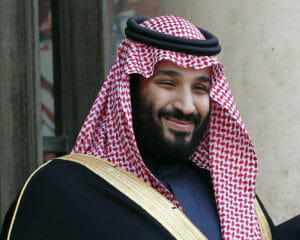
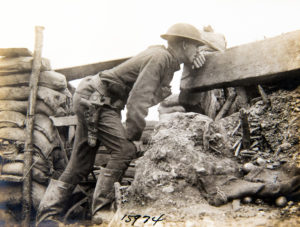
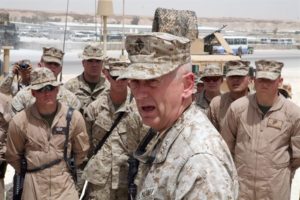

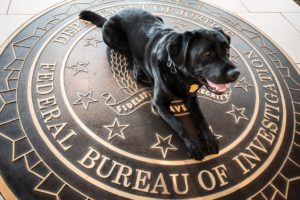
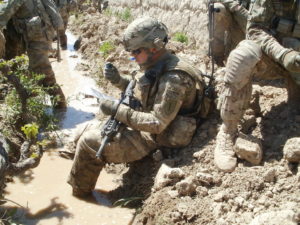


You need to be a supporter to comment.
There are currently no responses to this article.
Be the first to respond.